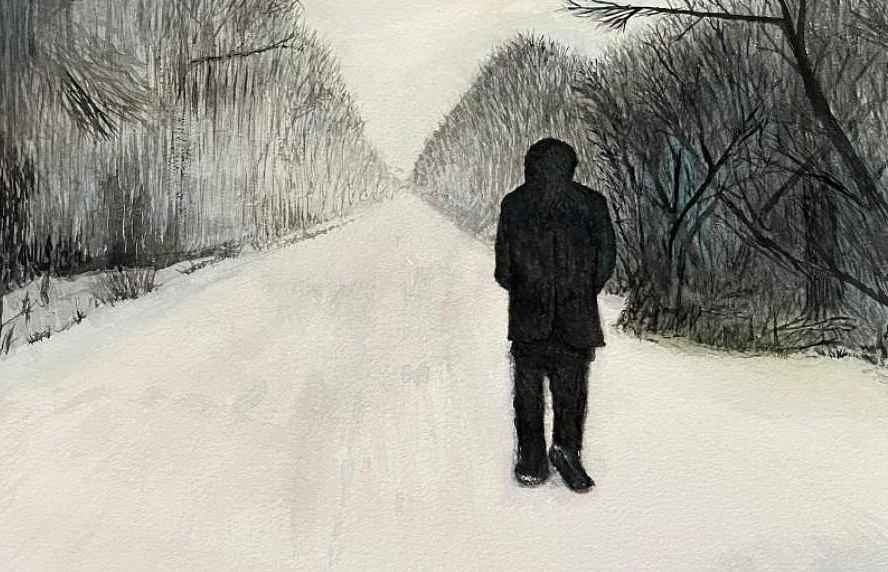






See listing of Recent and Most Popular articles on the Home Page
My World
Category: News & Current Events / Topics: Attitudes • Beliefs • Media • Mental Health • Popular Culture • Psychology, Psychological Health • Social Issues • Social Movements
Conspiracy Theories and Human Psychology
Posted: September 18, 2021
While conspiracy theories may not actually be increasing, awareness of them is, and it is important to understand the role they play in American culture…
Editor's Note: The following article appeared in the Sightings newsletter of the Martin Marty Center for Public Understanding of Religion at the University of Chicago. It was recommended by a reader.
If we pinned the biggest news stories of the year to a corkboard and unspooled some yarn to trace the connections, what would link these events? One obvious connection would be the role that conspiracy theories play in American culture.
Earlier this year, a mob stormed the Capitol, driven by the belief that a massive Democratic conspiracy had stolen the election from President Trump. More recently, efforts to vaccinate the population against COVID-19 have been met with strong resistance from some communities, who often rely on conspiracy theories to justify their rejection of the vaccine. These theories range from microchips hidden in the vaccine to scientists covering up evidence of harmful side effects.
Perhaps surprisingly, experts do not think that conspiracy theories are on the rise in recent years. But Americans are more aware now than before of the dangers that conspiracy theories can pose to our collective well-being. It’s one thing if your quirky uncle insists Paul McCartney was replaced by a look-alike; it’s another thing if millions of Americans see climate change as a hoax designed to undermine capitalism. (Wait... maybe these two conspiracies are related?)
Karl Popper, who helped popularize the term “conspiracy theories” in the 1950s, argued that they represent “the secularization of religious superstition.” In other words, people gravitate toward conspiracy theories for the same reasons they gravitate toward the more superstitious elements of religion. Psychological research largely confirms Popper’s thesis. To understand how, let’s look at three main reasons why people subscribe to conspiracy theories.
First, we want to be able to explain the world around us. Conspiracy theories provide broad explanations for events, often explanations that are not threatened by disconfirmation. This natural yearning for answers can send us astray, especially since cognitive biases make us see agency and intentionality when it is not there and make us erroneously assume that big events must have big causes. We can see these biases at work when we look at the origins of the Illuminati. Though the real Illuminati was small, ineffective, and disbanded in 1785, many latched onto them as a go-to conspiracy scapegoat in the wake of the French Revolution. Commentators could not wrap their minds around the idea that the revolutionary spirit emerged organically, so they concocted narratives of a secret cabal manipulating events to their own ends. As Rob Brotherton writes, “Freed from the hassle of actually existing, the Illuminati grew to mythic proportions in the fretful imaginations of its critics.”
Second, studies show that people rely more on conspiratorial thinking when they feel powerless. Counter-intuitively, clinging to a conspiratorial explanation of events gives people a sense of control. Since nefarious powers are at work behind the scenes, the thinking goes, I may not be able to actually influence events but at least I can see through the lies of the “official story.” Subconsciously, we also find a sense of comfort in knowing that the world is not chaotic and that someone is in control, even if that someone is malevolent. Just as you’d prefer knowing where the spider is in the room to not knowing where the spider went, it can be comforting to know there’s an order behind everything... even if it’s a New World Order.
Third, when people take themselves to be in an “us versus them” conflict, conspiracy theories help “us” reaffirm our group’s goodness by placing blame on the opposing group for bad outcomes, even when those outcomes do not intuitively seem to be caused by “them.” Many conspiracy theories draw on and feed into existing ethnic prejudices—think, for instance, of the tragic history of fourteenth-century Christians blaming Jews for the bubonic plague. But conspiracy theories that are not racist or anti-Semitic still allow people to paint their group as the virtuous truth-seekers who are being sabotaged by underhanded enemies. We are the good guys, and the only reason we are losing ground is because the bad guys are cheating. Though conspiracy thinking exists across the political spectrum, it is most common among people who are on the losing end. “Stop the Steal” chants are, in this sense, typical of conspiracy thinking.
These three psychological factors that contribute to conspiracy thinking also help us understand why people hold religious beliefs. But religion is not unique; these are also factors in why people conduct science experiments, do investigative journalism, cheer for sports teams, hold political convictions, and read history books. The connecting thread is, quite simply, humans. Though conspiracy theories may be irrational and outlandish, they are the products of ordinary human psychology. As Jan-Willem van Prooijen concludes, “One reason why conspiracy theories are widespread among regular citizens, therefore, is because they involve normal and otherwise functional cognitive processes.” Marielle Harrison, who is teaching an upcoming course on QAnon at the University of Chicago, puts the point well: “There’s no such thing, really, as brainwashing. It’s just a spectrum of all the normal things that influence human behaviors.”
Though the tendency to weave conspiracy theories is innate to humans, identifying the root causes of conspiracy theorizing can help us create social conditions where people will be less likely to jump to conspiratorial conclusions. A society where people are educated to understand the structural causes of events, where people believe they have some degree of influence over social outcomes, and where people do not see their world through an “us versus them” lens, is a society that will be less prone to conspiracy theorizing. The path to a more truth-seeking society involves education, democracy, and depolarization.
(At least, that’s what I’m going to suggest at the next Illuminati meeting.)
Sightings is a publication of the Martin Marty Center for the Public Understanding of Religion at the University of Chicago Divinity School.
The views and opinions expressed in this article are those of the author and do not necessarily reflect the position of the Marty Center or its editors.
Search all articles by Russell Johnson
Posted: September 18, 2021 Accessed 805 times
![]() Go to the list of most recent My World Articles
Go to the list of most recent My World Articles
![]() Search My World (You can expand the search to the entire site)
Search My World (You can expand the search to the entire site)
![]() Go to the list of Most Recent and Most Popular Articles across the site (Home Page)
Go to the list of Most Recent and Most Popular Articles across the site (Home Page)
 Loading requested view...
Loading requested view...